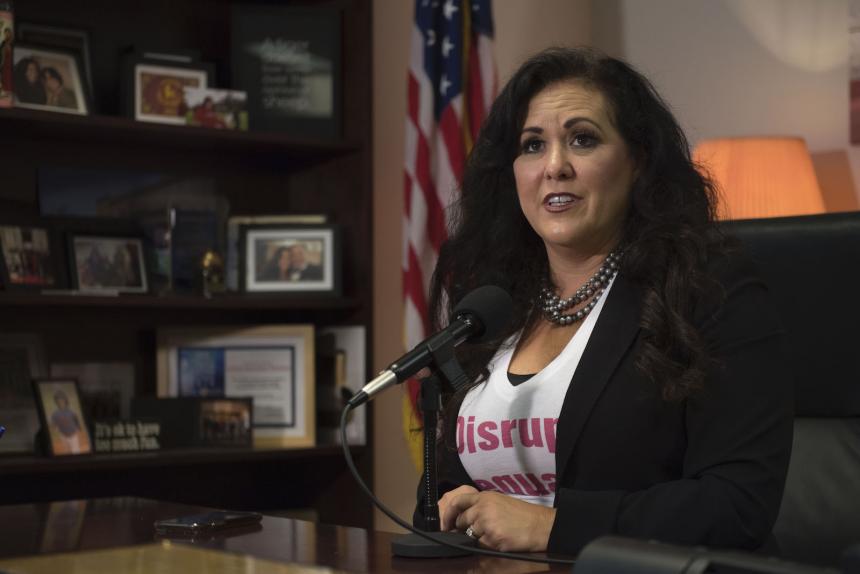
California State Capitol (Photo: Kevin Sanders for California Globe)
AB 257 – Food Facilities and Employment
The Council would have 10 members with specified powers
By Chris Micheli, August 27, 2022 3:25 pm
On August 25, Assembly Members Chris Holden, Wendy Carrillo, Evan Low, and Luz Rivas amended their Assembly Bill 257 to address concerns expressed by Governor Gavin Newsom. The bill also has eight co-authors from the two houses. The bill would amend Section 96 of the Labor Code and add Part 4.5.5 to Division 2 of the Labor Code.
AB 257 would enact the Fast Food Accountability and Standards Recovery Act or FAST Recovery Act. It would establish until January 1, 2029 the Fast Food Council with the Department of Industrial Relations. The Council would have 10 members with specified powers. The Governor’s requested amendments removed the joint employer liability provisions and modified several aspects of the Council.
This Council would establish minimum standards for the fast food industry on wages, working hours, and other working conditions related to employees’ health, safety, and welfare. The bill would specify that the Council’s standards would apply, rather than those of any other state agency, for fast food restaurant workers and franchises, except those of Cal-OSHA.
This Council would have to report to the Legislature for a standard to become effective, no earlier than October 15 of that same year. And the Council would have to provide any requested information to the Senate and Assembly Labor Committees to review their performance and standards.
Section 1 of the bill names to act as Fast Food Accountability and Standards Recovery Act or FAST Recovery Act.
Section 2 of the bill provides eleven legislative findings and declarations, including that, for years, the fast food sector has been rife with abuse, low pay, few benefits, and minimal job security. Moreover, fast food workers, and the public they serve, face serious and unacceptable risks to their health and safety.
In addition, cooperation between state agencies with responsibility for improving and enforcing health and safety and other worker protection laws, with regular input from business and worker representatives, along with improved incentives to achieve compliance, is critical to protecting fast food workers, customers, and the public.
The Legislature concludes that sector-wide minimum health, safety, and employment standards, including standards concerning wages and other working conditions, identified by an expert body with subject matter expertise and experience in the fast food sector are necessary to protect, maintain, and ensure the health, safety, and welfare of, and to supply the necessary cost of proper living to, fast food restaurant employees.
Section 3 of the bill would amend Labor Code Section 96 to allow claims to be made for violations of any standards issued by the Fast Food Council.
Section 4 of the bill would add Labor Code Part 4.5.5. to Division 2, which would be titled “Fast Food Workers.” It would define the terms “fast food chain,” “Council,” “fast food restaurant,” “fast food restaurant franchisee,” “fast food restaurant Section 4 would add Labor Code Part franchisee,” “franchise,” “franchisee,” “franchisor, and “working conditions.”
The Fast Food Council would be established within the Department of Industrial Relations consisting of 10 members, as specified. The Governor would appoint the representatives of the state agencies, fast food restaurant employees, fast food restaurant franchisees, and fast food restaurant franchisors. The Assembly Speaker and Senate Rules Committee would each appoint one representative of an advocate for fast food restaurant employees.
The Council is subject to opening meeting laws. It purposes are to establish sector-wide minimum standards on wages, working hours, and other working conditions adequate to ensure and maintain the health, safety, and welfare of, and to supply the necessary cost of proper living to, fast food restaurant workers and to ensure and effect interagency coordination and prompt agency responses regarding issues affecting the health, safety, and employment of fast food restaurant workers.
The Council cannot adopt any standards until after the Director of Industrial Relations receives a petition approving the creation of the Council signed by at least 10,000 California fast food restaurant employees. These are specific rules relating to petition signing and verification.
The Council is required to adopt standards on wages, working conditions, and training. To the extent there is a conflict between standards issued by the Council and the regulations issued by another state agency, the standards issued by the Council apply to fast food restaurant workers and fast food restaurant franchisees and franchisors, and the conflicting regulations of the other state agency have no force or effect with respect to fast food restaurant workers, franchisees, or franchisors.
In addition, any minimum wage established by the Council must cannot exceed $22 per hour during calendar year 2023. On January 1, 2024 and annually thereafter, the highest hourly minimum wage that can be established by the Council cannot increase by more than 3.5% or the rate of change in the averages of the most recent period for the U.S. Bureau of Labor Statistics adjusted US CPI for urban wage earners and clerical workers.
The Council would not be permitted to promulgate regulations creating new paid time off benefits or predictable scheduling. For minimum standards related to health and safety of employees, the Council is required to petition Cal-OSHA for the adoption, amendment, or repeal of any occupational safety and health standard.
The Council is required to conduct a full review of the adequacy of the minimum fast food restaurant health, safety, and employment standards at least once every three years and make recommendations of any standards. The Council must also hold meetings or hearings not less than every six months.
The Council can coordinate with local agencies and those local jurisdictions with a population of 200,000 or more may establish a Local Fast Food Council, which is to hold periodic meetings. The local council can provide written recommendation to the Council. The local councils must comply with open meeting laws.
Although the Council’s standards for minimum wages, maximum hours of work, and other working conditions are those for purposes of state law, local jurisdictions can exercise their police powers to establish more protective local standards.
The Labor Commissioner and the Division of Labor Standards Enforcement would enforce the Council’s standards. Occupational safety and health violations would be enforced by Cal-OSHA. The Civil Rights Department would enforce the discrimination, harassment, and related retaliation laws. There are specified rules for issuing and contesting citations.
A standard by the Council does not supersede a standard covered by a valid collective bargaining agreement if the agreement expressly provides for the wages, hours of work, and working conditions of employees, as well as a regular rate of pay not less than 30% more than the state minimum wage for those employees. On January 1, 2029, the Council will cease operations.
A fast food restaurant operator is prohibited from discharging, discriminating, or retaliating against any employee for any of three specified reasons. In such cases, the employee has a private right of action to sue the fast food restaurant operator and be entitled to reinstatement, treble wage damages, and attorney’s fees and costs.
There would be a a rebuttable presumption of unlawful discrimination or retaliation if a fast food restaurant operator discharges or takes any other adverse action against one of its employees within 90 days following the date when the operator had knowledge of that employee’s actions.
Finally, on January 1, 2029 and annually thereafter, if the Council is no longer operative, the minimum wage in effect the preceding December 31 must be increases by either 3.5% of the rate of change in the averages of the most recent period for the U.S. Bureau of Labor Statistics adjusted USCPI for urban wage earners and clerical workers.
Section 5 of the bill provides that no reimbursement is required by the state to a local agency or school district.
- Conservation Banks - February 22, 2026
- Mergers of Unincorporated Associations - February 21, 2026
- A Historic Look at Bill Introductions in the California Legislature - February 21, 2026




5 thoughts on “AB 257 – Food Facilities and Employment”